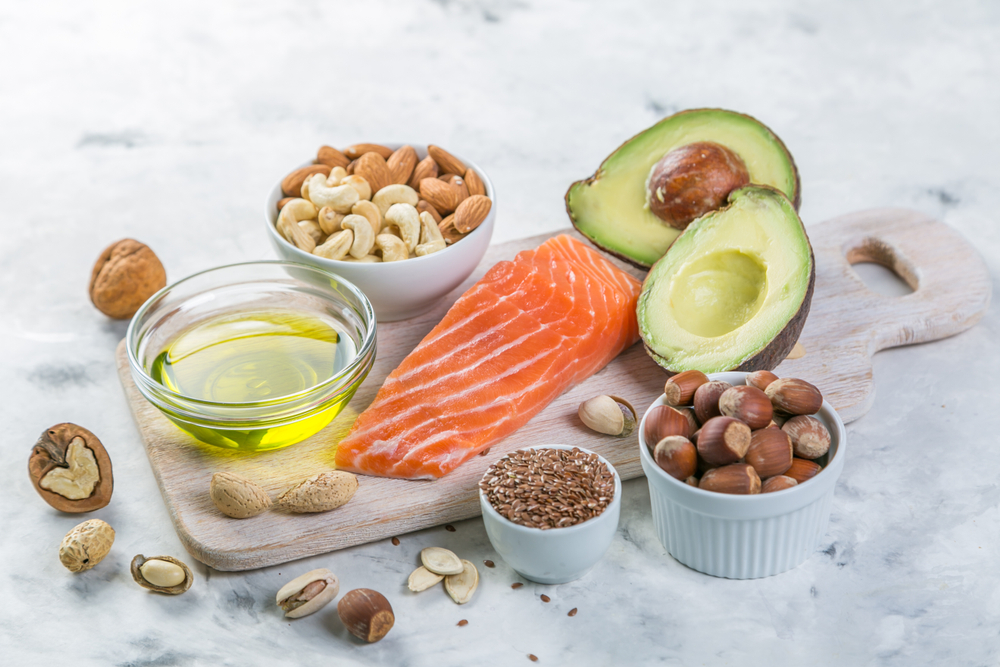Athletes Diet: Energizing Foods To Nail Your Training Sessions
No training session is perfect without a balanced diet. The food you eat before and after a workout not only affects your performance but also your comfort. This especially rings true for athletes who want to perform at their peak during every training session.
Eating the right energy foods at the right time without over-straining your digestive system is important to stay energized throughout the workout. Meaning, you should focus on eating quality carbs that can be quickly converted into glucose for immediate energy, the reserves of which will be stored as glycogen for future use. Furthermore, the glycogen stores should be replenished after every training session to fasten muscle recovery.
Therefore, it is important to closely monitor what goes into your plate as an athlete. After all, energy is essential, and it is what places the Cardinals in first place in the NFC West.
Here are five energizing foods that will help you perform at your peak during training sessions.
Food #1: Rice
| Calories | Proteins | Carbs | Lipids |
| 118 kcal | 3.5 g | 25 g | 0.4 g |
Values per 100 g.
Satiating and gluten-free, rice is an essential food for athletes, especially those who are gluten intolerants. It has a moderate glycemic index (GI) that ranges at 58 for basmati rice and 50 for brown rice. However, make sure you avoid consuming quick-cooking rice as much as possible as it has a GI of around 87.
Rice offers 25 grams of carbohydrates per 100-gram serving, which makes it an ideal food option for athletes. Carbohydrates quickly boost your performance and act as the main fuel for physical activities. Eating carbohydrate-rich food before training helps you to start fully recharged—you have enough energy to perform at your best.
Furthermore, rice is rich in fibers, vitamin B, antioxidants, and selenium.
Food #2: Chicken
| Calories | Proteins | Carbs | Lipids |
| 150 kcal | 21 g | 0 g | 7 g |
Values per 100 g.
An excellent source of complete protein, zinc, phosphorus, and selenium, white meat is a low-fat food option that promotes muscle development and recovery. Thanks to its good amino acid content, the proteins contained in the chicken are of good nutritional quality. Additionally, chicken is also rich in vitamin B3 and B6, which supports skin health and the healthy functioning of the nervous system, respectively.
According to studies, eating chicken leads to improved blood lipid levels due to its low saturated fatty acid content, which in turn, helps prevent cardiovascular diseases.
Food #3: Oatmeal
| Calories | Proteins | Carbs | Lipids |
| 375 kcal | 11 g | 60 g | 8 g |
Values per 100 g.
While not all cereals are made to be consumed for breakfast, a large bowl of oatmeal topped with some fruits makes an ideal breakfast option to improve your health and sporting performance. In fact, researches prove that consuming 70 g of whole grains like oat flakes reduces the risk of premature death by nearly 22 percent. This is because cereals prevent certain types of cancer and cardiovascular diseases that happen to be the top cause of death worldwide.
With a moderate GI of 59, oatmeal reduces blood cholesterol levels and increases insulin secretion. Consider consuming it as a drink or incorporate it into simple recipes like bowl cake, porridge, or cereal bars.
Food #4: Fish
| Calories | Proteins | Carbs | Lipids |
| 206 kcal | 20 g | 0 g | 14 g |
Values per 100 g.
Rich in Omega 3, proteins, vitamin B, minerals, and other trace elements, fish improves neuromuscular function and reduces fatigue, thereby improving your sporting performance. A sufficient supply of omega 3 can increase your muscle function by up to 20 percent.

According to the National Agency for Health Security, Food, Environment, and Labor (ANSES), fish should be consumed at least twice per week.
Therefore, try to consume lean fish such as Alaskan hake or cod with a fatty fish like sardine or salmon to meet your weekly requirement. What’s more, eating salmon comes with an additional advantage of preventing cardiovascular diseases and aiding brain development.
Nevertheless, be wary about the risk of contamination by heavy metals. Always inspect the label and the fish’s origin before making the purchase.
Food #5: Green Vegetables
| Calories | Proteins | Carbs | Lipids |
| 23 kcal | 2.2 g | 3 g | 0.2 g |
Values per 100 g.
According to a study conducted at the University of Leuven in Belgium, green vegetables such as spinach and kale are extremely beneficial for enhancing sporting performance. This is because they contain nitrates that result in vasodilation and thereby better oxygen transport. In addition, being iron-rich, adding green vegetables to your diet as an athlete helps improve endurance.
What Not To Eat Before A Training Session
Typically, foods that are rich in fat and fiber tend to remain in your stomach for a long time as they are hard to digest. This means the blood that’s meant to supply oxygen to the muscles will instead flow to your stomach. When this happens during a training session, you are likely to experience stomachache, cramping, and nausea.
As a rule of thumb, avoid foods like potato chips, red meat, doughnuts, and candy bars before workouts. Instead, foods like dried fruits, beans, dairy, etc. are ideal nutrition-wise. Nevertheless, you might want to skip potentially gassy foods before training if you are prone to bloating.